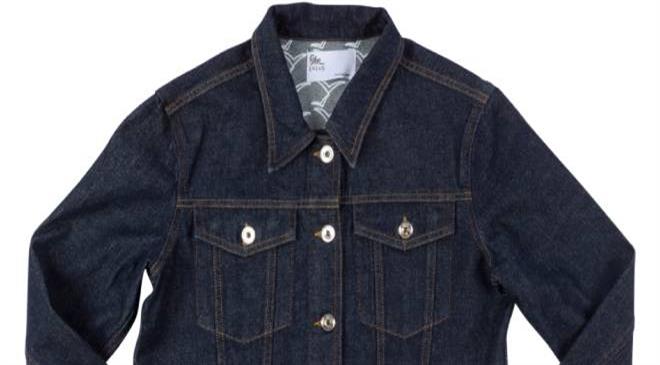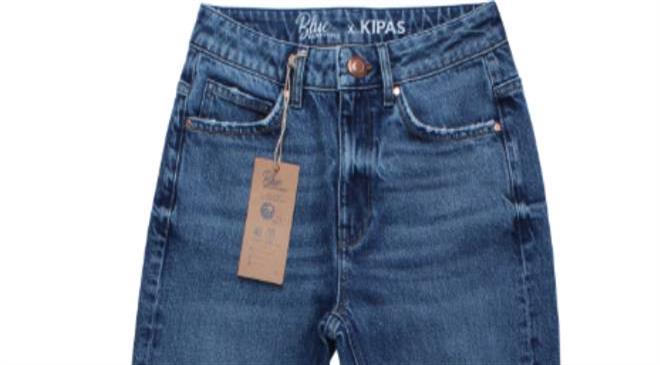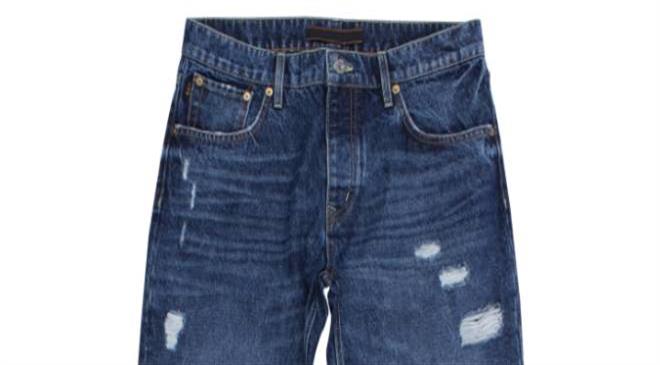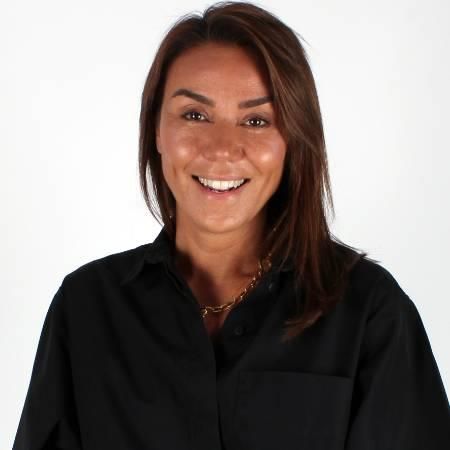Will not be the biggest but cleanest
Founded in 1985, Ereks is a jeans manufacturing company based out of Turkey. In an interview with Fibre2Fashion, Eylem Temizkan, board member/partner (sales & marketing operation), Ereks-Blue, speaks about Erek’s strategy to boost demand for its products, how it is following through on its plan to go circular by 2030, and future trends for the denim sector.
Could you tell us a bit about how it all started for Ereks and Era?
Ereks was founded in Istanbul in 1985 by professionals who had been active in all stages of production in the textile and readymade sector, starting from cotton. The founding team has always attached value to a holistic view of the sector. It has developed innovative approaches and techniques, and implemented these in its production facilities, resulting in their widespread use throughout the sector. It has been involved in sector NGO's in order to support the development of the sector not only in the supply chain level but also in the value chain by leading the conception and implementation of education projects. The team has always believed human interaction and face to face communication to be the most important success factor in the readymade sector. At a time when Ereks was about to reach an optimal size, it carried out a horizontal expansion in order to achieve effective quality control and high productivity. Era Denim was thus founded in 2011. This second company produces men and women’s denim and washed woven sportswear for various local and international markets with a high level of quality and service.
Do the designs come from your clients or are you responsible for the same?
It goes both ways. Many of our clients utilise designs from our showroom, brought to life by our Product Design & Development (PD&D) team. And at the same time, we have many clients who supply us with their own designs.
When creating a wash, how does the inspiration come about?
Recently the strongest inspiration is coming from the intention of enhancing our stance on sustainability. As we mentioned before, we are living in an alternate washing universe and we need to think twice before acting because there are strict rules for our sustainable washing strategy which we call “beyond blue”. Our beyond blue concept focuses on different environmental hotspots of washing stage, such as water consumption, energy savings, conscious chemistry, pumice stones and emissions. Basically, anything that contributes to one of those aspects is an inspiration point. We are always supported by our chemical partners in order to stay up to date with the latest washing chemicals and their applications. What we do is art; denim is an art piece where you can get the same look in many different ways.
Are Ereks and Era two separate entities under a main group company? What do each specialise in?
Ereks is the mother company and Era is the younger sister. Both companies are denim and non-denim manufacturing companies, sharing resources and facilities owned by the same shareholders.
What is the sourcing strategy at Ereks and Era? Where do you source the raw materials from?
The main strategy behind sourcing is mostly the current trends of the sector and obviously customer expectations, which are most of the time in line with the trends. And in line with our sustainability principles, we value sourcing local materials, which are vastly available within the Turkish market.
We always try to develop projects with our customers and encourage them to source sustainable materials from fibre to end. For example, we are proud to say that in 2020-2021 season, we have replaced 75 per cent of our conventional buttons and rivets into eco-friendly finishes by the valuable contribution of YKK and our customers who share the same passion with us.
Moreover, as part of the company’s vision, we have set our target to become a circular producer before 2030.

How long does it take to develop a wash? And how many techniques are often used on just a single one?
It really depends on the reaction of the fabric, but mostly our capable wash development team can develop a wash in a couple of days. They first work on fabric legs, trying out their initial recipe. Then certain amendments are made on the initial recipe and the sample garment is washed aiming at the target wash. We always push ourselves to get the desired look with the minimum number of steps and minimum chemical consumption. We target to give a one-way ticket to our jeans, in other words from washing machine to dryers. Not too many stations inside the factory. With this purpose, we use our innovative laser technology, ozone technology and certified double function chemicals. We also go deeper to save even more resources in specific steps on washing. For example, we use waterless enzymes and we work with pumice stone alternative products in order to get desired high and low effects. It helps us to save water and prevent sludge creation caused by pumice stone.
Also, is fit a factor and how it changes depending on textiles chosen and the treatments involved to creating the final product?
Fit is a great factor in our business. No jeans are good enough with a poor fit. And fit (or in other words measurements) is very much affected by the wash. Therefore, it requires a great deal of pattern-making and workmanship expertise to bring an ideal garment into life.

How many types of denim garment varieties do you offer?
We make denim and non-denim garments of all types, ranging from basic 5-pocket jeans styles to heavily styled dresses, jumpsuits or blazers. And it’s not only denim garments for us. We are also deeply experienced in non-denim styles as well as unwashed semi-tailored styles.
What is your USP compared to other denim garment manufacturers?
I think our difference comes from the vision we have as a whole company, from the workers to the management level. We know that the conventional ways of doing business is damaging the nature and consuming resources for future generations. So we followed our dreams to have the first denim washing factory in Turkey built according to LEED principles and plan to become a circular company before 2030. We want to show that another way is always possible, like an alternate universe. Water, energy, conscious chemistry and emissions are monitored carefully and cared for at the maximum level. We are investing in a waste water recycling system, new machinery, and green energy not because someone asked, but we want to produce our jeans in that way. This is who we are and this is what we do.
On an average, how many customised denim collections do you make in a year?
We make 4 different showroom collections per year. This would be for men’s and women’s for every SS and AW season. And on top of this, we make more than 20 customised collections for our clients in a year.
With sustainability being the focus now than ever, how is the demand growing for your sustainable denims?
The demand for sustainable denim and non-denim garments is indeed huge and growing every day. Each one of our clients are now with a certain level of sustainability target. And the demand is not only for the main fabric materials and the wash, but also for all kinds of trims and accessories.
Which brands and retailers are you currently associated with? What are the new associations you are looking forward to?
Currently, our customer portfolio extends throughout the entire Europe; namely Denmark, Italy, UK, Netherlands, Germany, France, Hungary, etc. We are extremely interested in associations with business partners that will synchronise with our immediate and mid-term sustainability and circularity targets. We are a member of Jeans Redesign project, Amsterdam Denim Deal project and we are one of the committed companies in World Circular Textile Days. We always push our limits to reduce resources and develop new manufacturing methodologies. We are open to any kind of collaboration and new customers who will work with us in that direction.
From which geographies is the demand for your fabrics most from?
We receive demands from all over the world. Turkish denim sector is full of denim pioneers and hence the interest is from all over the globe.

Technology is proving to be a life-saving game changer in the time of the pandemic. How are you leveraging technology in current times?
With the outbreak of the pandemic, we were immediately deprived of our most valued face-to-face interactions with our clients. And we immediately inserted technological tools instead. Online meetings are now a daily routine for us. We prepared a digital showroom with 400+ high resolution photos of our showroom styles, at the disposal of our clients, which is supplied with new styles on a regular basis. In addition, we made an agreement with an ERP company to monitor and make improvements from raw material input to end stages. We are building our waste water recycling plant at the moment and we will be able to recycle 80 per cent of our waste water in a circular loop starting from October 2021. Additionally, we have invested on a game changer technology that cuts lots of manual operations and saves valuable resources. We can make an another interview on this later on.
What trends do you foresee for the denim sector in future?
We believe that future of fashion will evolve from traditional models to the consumer to manufacturer model called “C2M”. By this model, new sales networks will be created with no impact principles in order to close the loop and apply circular design principles.
What could be your strategy to boost aggregate demand in the sector going ahead?
We want to be a leader in smart and sustainable production methodologies. We do not want to be the biggest producer but rather want to be the cleanest one. In order to achieve this goal, we will keep following our vision to become a circular producer.
What are your future plans?
We will keep following our vision and targets of circular production. We will produce responsibly and ethically. We will not be the biggest but will be the cleanest. We will do everything in our power to educate the industry, share our knowledge and become a circular company before 2030.




